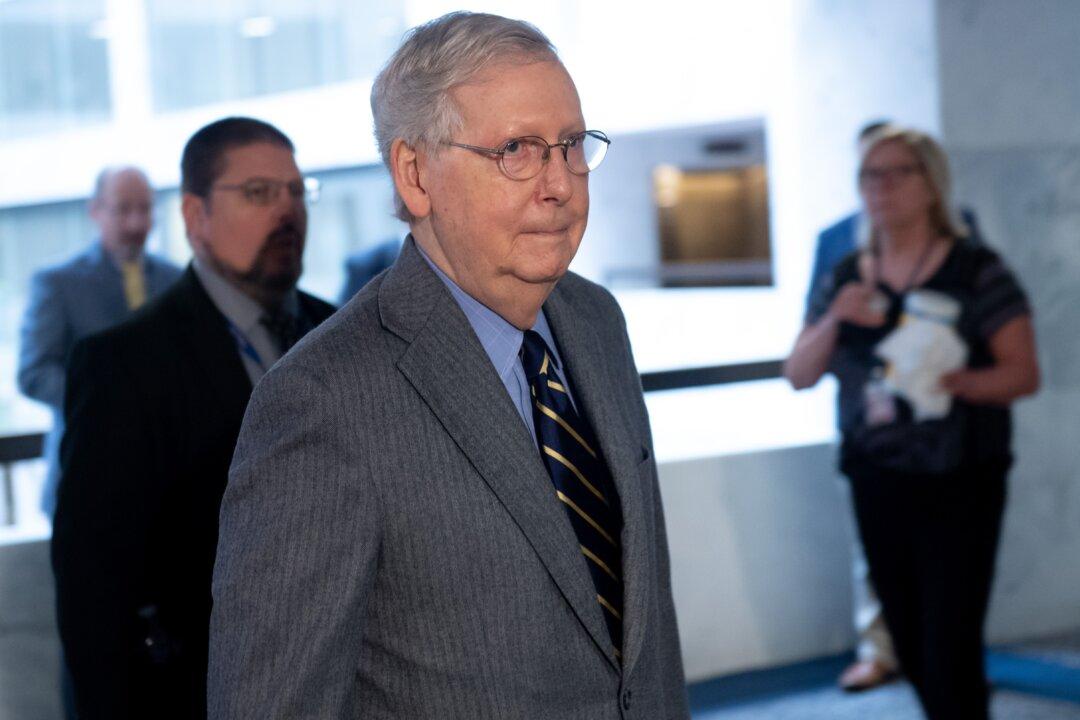WASHINGTON—Senate Republican and Democratic leaders ripped each other on the Senate floor March 23 as a $2 trillion economic stimulus package stumbled amid intense partisan bickering.
“Are you kidding me?” Senate Majority Leader Mitch McConnell (R-Ky.) demanded, during an impassioned floor speech. “This is the moment to debate new regulations that have nothing to do whatsoever with this crisis?”





